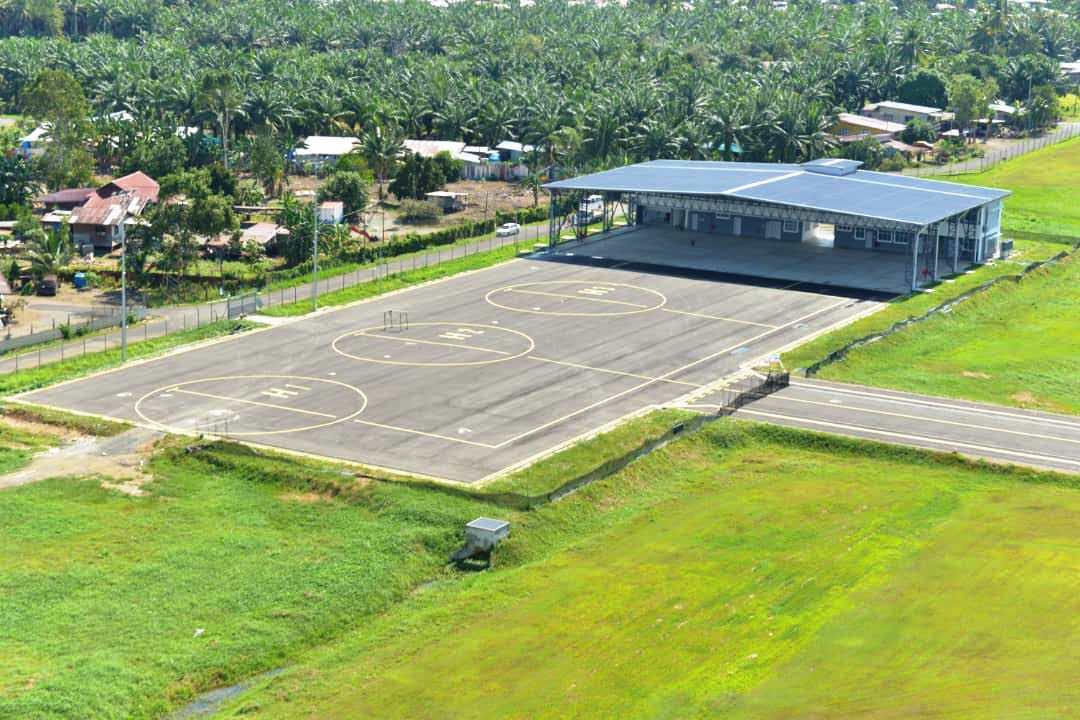
SHAH ALAM: Forward Operating Base Ready for Operations. The RMAF Forward Operating Base (FOB) complex at Lahad Datu aiport, Sabah, launched in May, 2016 is expected to start operations by year end.
RMAF posted in its website that the FOB will strengthened the capability of the ESSCOM operations with the detachment of EC725 helicoptes capable of conducting night time operations. The FOB, it said is expected to assist security operations at the ESSCOM AOR especially those involving cross border intrusions.
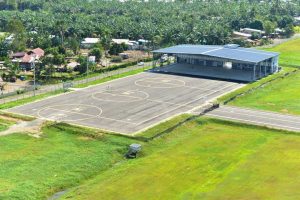
The RMAF Forward Operating Complex at the Lahad Datu airport. Note the houses next to the complex. RMAF.
RMAF Air operations commander Lt. Jen. Abdul Mutalib Wahab toured the facility on Oct. 23 and was briefed on the expected operations of the FOB.
Bernama the national news agency reported on May 28, 2016 that the FOB ground breaking ceremony was performed by the then PM Najib Razak
The helicopter FOB project with an allocation of RM9 million on a 0.48 hectare area at the Lahad Datu Airport involved the construction of a shelter and apron capable of accommodating six helicopters.
The FOB will function as a transit and air support centre for the operations of all types of helicopters of the Malaysian Armed Forces besides acting as an operations centre when defence operations are carried out to fend off external threats
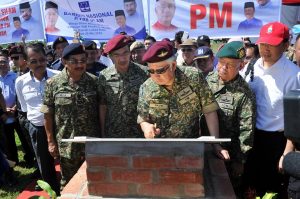
Malaysian Defence post on the FOB.
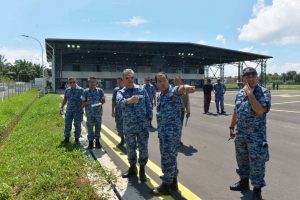
Previously the then Defence Minister Hishammuddin Hussein had also said that the six MD530G light scout attack helicopter bought for the Army will be based at the FOB. With the Defence Ministry looking to cancel the deal this unlikely to happen. It is likely that the RMN which is buying three maritime operations helicopter for operations in ESSCOM will also use the FOB for refueling and ad-hoc basing when they get them.
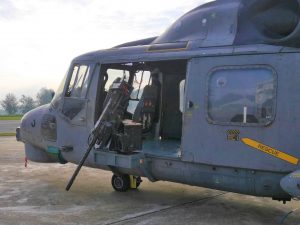
The FN Herstal 12.7mm heavy machine gun as fitted on the RMN Super Lynx. This is definitely an FN made gun as I saw the markings.
It must be said that from the pictures provided by RMAF and a Google Map search, the FOB is located next to a village, with just a single perimeter fencing separating them. I believed RMAF and the military are aware of the security risks associated with the location of the FOB and are trying to find a solution. The best one is of course to relocate the houses there to another location but of course this will mean that the cost of the FOB will increase.
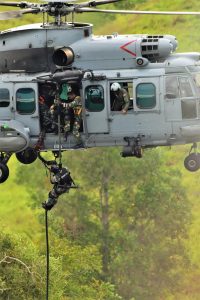
An EC725 dropping a Paskau team at the Kota Belud ATG range on Nov. 21, 2017.
It be must noted that during the Lahad Datu incursion, several military facility in Sabah were reportedly targeted by sympathisers of the Sultan of Sulu by taking pot shots from outside the perimeter fencing. None of the incident were officially verified by the government though I was told that every one at these facilities took the threat very seriously.
— Malaysian Defence


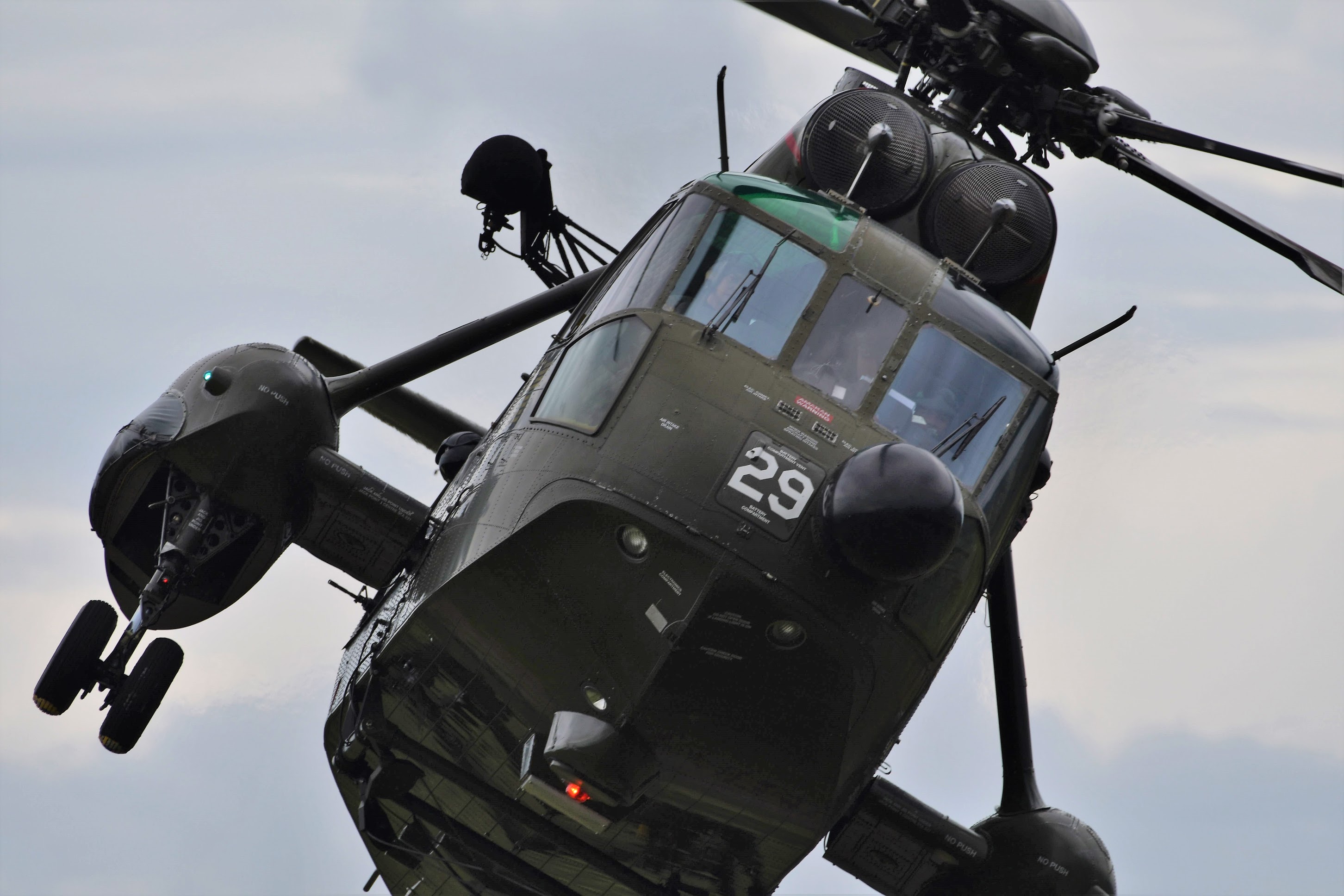
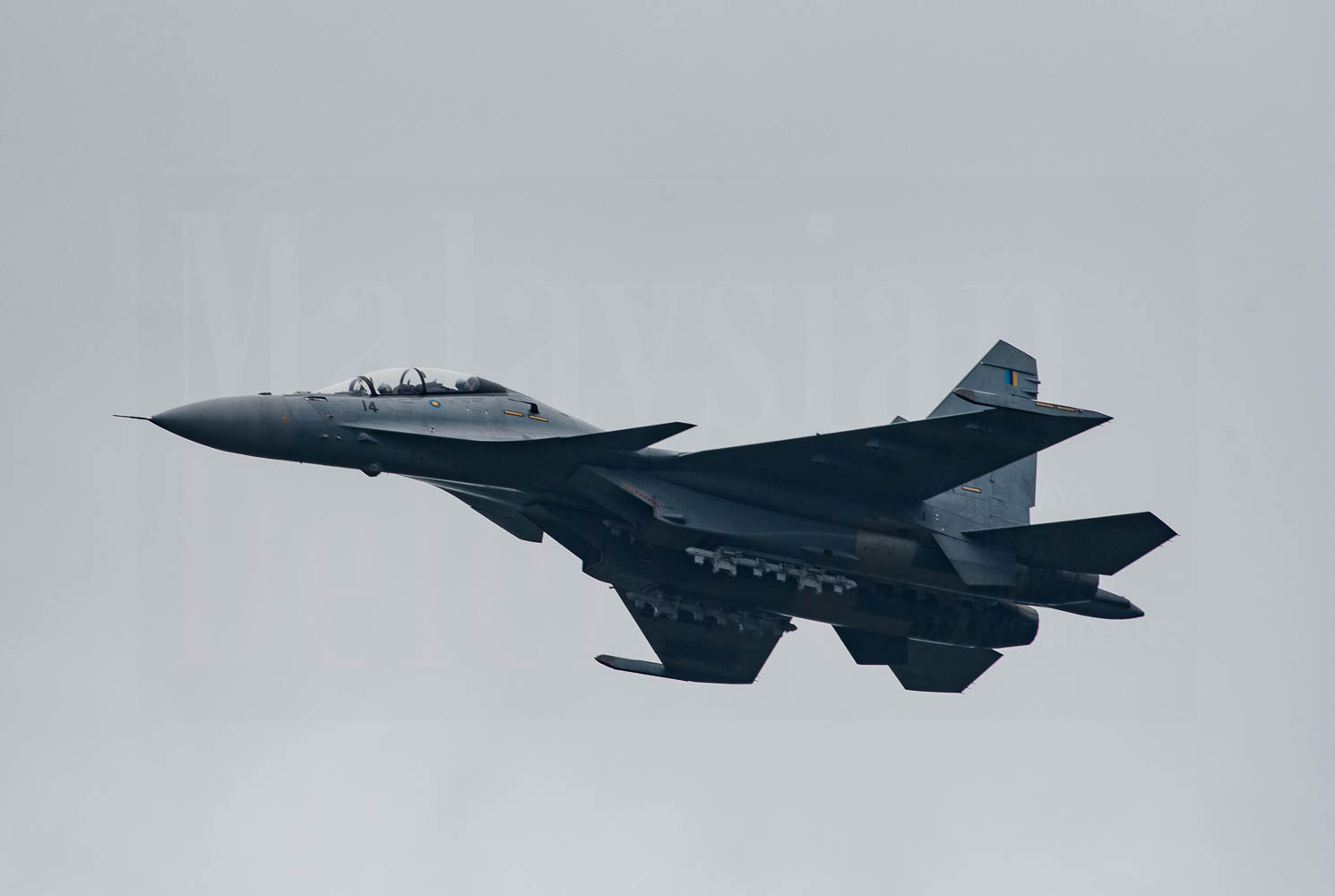
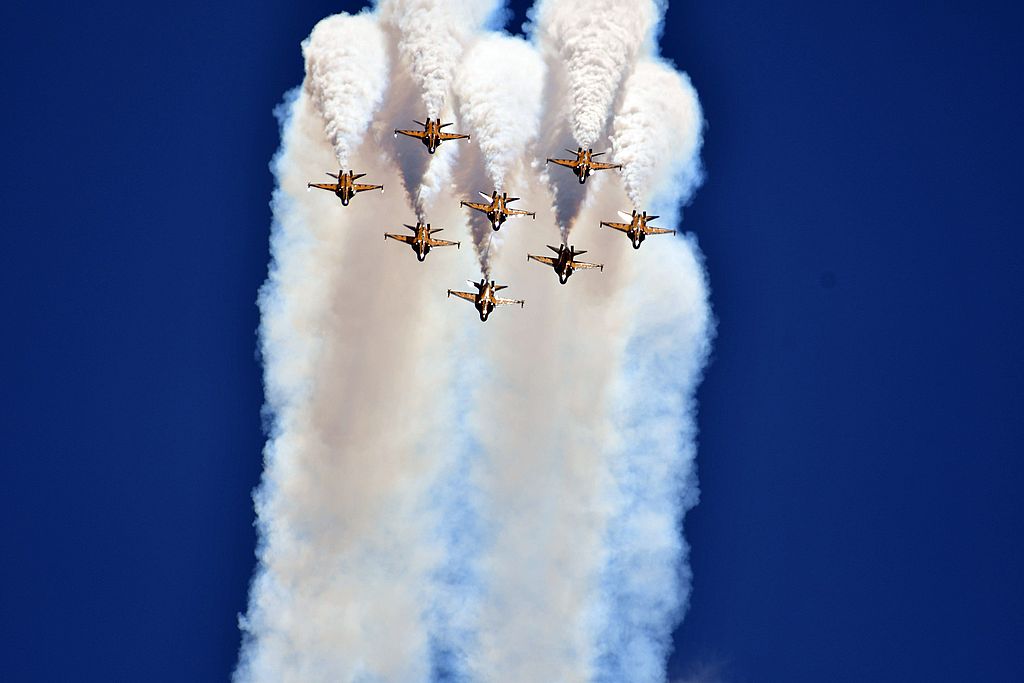
Wait local newspaper quoted the figure at 15million
They can easily put up a brick wall along the perimeter fencing that have risk of spotting & shooting. Then put up CCTV cameras along the perimeter.
More worrying is drone attack, which imho even being located at isolated areas, cannot be preventable.
Force protection: these resource constraints apply even more to us.
http://centralblue.williamsfoundation.org.au/security-forces-in-highintensitywar-a-look-back-at-airfield-defence-for-a-future-consideration-of-the-raaf-sean-carwardine/
what is to prevent a 60mm motar shot from one of the kampung house back yard? because all of the RMAF asset are well visible from the fence.
There are many things we can do but there is limit to what we can actually do; especially given that we’re not on a war footing and too drastic measures will have consequences.
In a perfect world FOBs (and air bases)would be in the middle of nowhere in “no go” areas up to 30km; in which no civilians are allowed and cellular, radio and GPS jammed but the reality is that it’s not possible.
The measures we take also depends on the threat level; if we wanted to guard against all manner of attacks; by individuals, “drones”, aircraft, missiles, etc, then all bases would be surrounded by 15 foot walls, armed guards (with shoot on sight ROEs) would be patrolling the perimetre up to several KM away and there would be 24 hour UAS coverage. Looks great on paper but not practical in reality.
As was said
Whatever the measures, it will increase the costs
A wall is probably cheap protection against direct-fire threat
But military will tell you that a wall is not a true obstacle unless it is monitored, patrolled, guarded, with troops ready to respond
This reminded me of an incident during the second emergency. We were staying at the Jln Lapangan Terbang Camp in Sg Petani for two weeks n during these two weeks normal trainning was conducted.
3 days after we left the CTs lobbed 3 mortar bombs that detonated. Their aim was good. All 3 hit the parade square n the barracks.
The CTs must have infiltrated the camp n observed the camp routine but due to luck and a failure of their intelligence, the bombs hit an empty camp
Chua – “A wall is probably cheap protection against direct-fire threat”
A better form of protection would be regular patrols around the perimetre. The main value in a wall is that it prevents people on the outside from looking in and from entering but a wall by itself is useless without surveillance systems and other measures.
A lot of things can be done but first the threat level has to be gauged and based on intel; a list of likely possible forms of attacks have to be identified; as well as the actual likelihood. Not to mention estimating whether attacks will be pin prick attacks in the form of a few inaccurate shots and a couple of mortar rounds or something more serious and coordinated.
It also has to be decided which of the many bases we have are more likely to be attacked. Or will the attack be on a non military target that is not protected but one that is of strategic importance?
The problem is that we are on a peacetime footing and dealing with threats that we deem are the most likeliest would leave us vulnerable to other forms threats. If we actually had well defined threats: funding would be easier to obtain and justify.
Lee Yoke Meng,
Thanks for relating this episode. It does show that an adversary of limited means can cause effects disproportionately greater than the means available to them.
Kem Lapangan Terbang is a large camp. Accurate observation and estimation of the distances between the point targets within the perimeter, from outside the camp would have been difficult if not impossible. I do not believe there was/is high ground within useful distance to have facilitated observation. What happened does suggest the info was acquired from within the camp.
It also says something that the shooters likely did not have the benefit of much practice or any sight or the target, yet put their rounds on target without having to fire ranging shots.
Off topic-
There are pics of men of 6 RRD holding M4s fitted with optics and handguards with rails, at the ongoing Semangat Bersatu in Singapore. Also seen are the old M16+M203.
AM – “can cause effects disproportionately greater than the means available to them”
Recent ones that that come to mind is the destruction of several USMC AV-8s at a base in Afghanistan and about 1/3 of Iraq falling to a few thousand lightly equipped but very mobile and motivated non state actors who faced a much larger and better equipped enemy who had no will to fight.
In our context look at the resources we’ve poured into ESSCOM to deal with threats posed by non state assets who have limited capabilities but have surprise and a long porous coastline on their side.
Reply
And will do so for the next 10 years unfortunately…but then it’s an easy sell as they are a clear and present danger
A lot of what we’ve done under ESSCOM can also easily be used for threats other than non state ones; that’s the good news.
With regards to non state threats; as we increase our capabilities on
Eastern Sabah; non state actors, whether the remnants of the “Royal Sulu Army” or bandits/militants/kidnap gangs (many of whom are active members or have ties with the MNLF and the ASG) will simply look for softer targets.
No doubt there is a clear threat in Eastern Sabah but the main danger is that all the resources and attention we’re pouring into ESSCOM will leave other areas neglected and its those areas which might be the next problem.